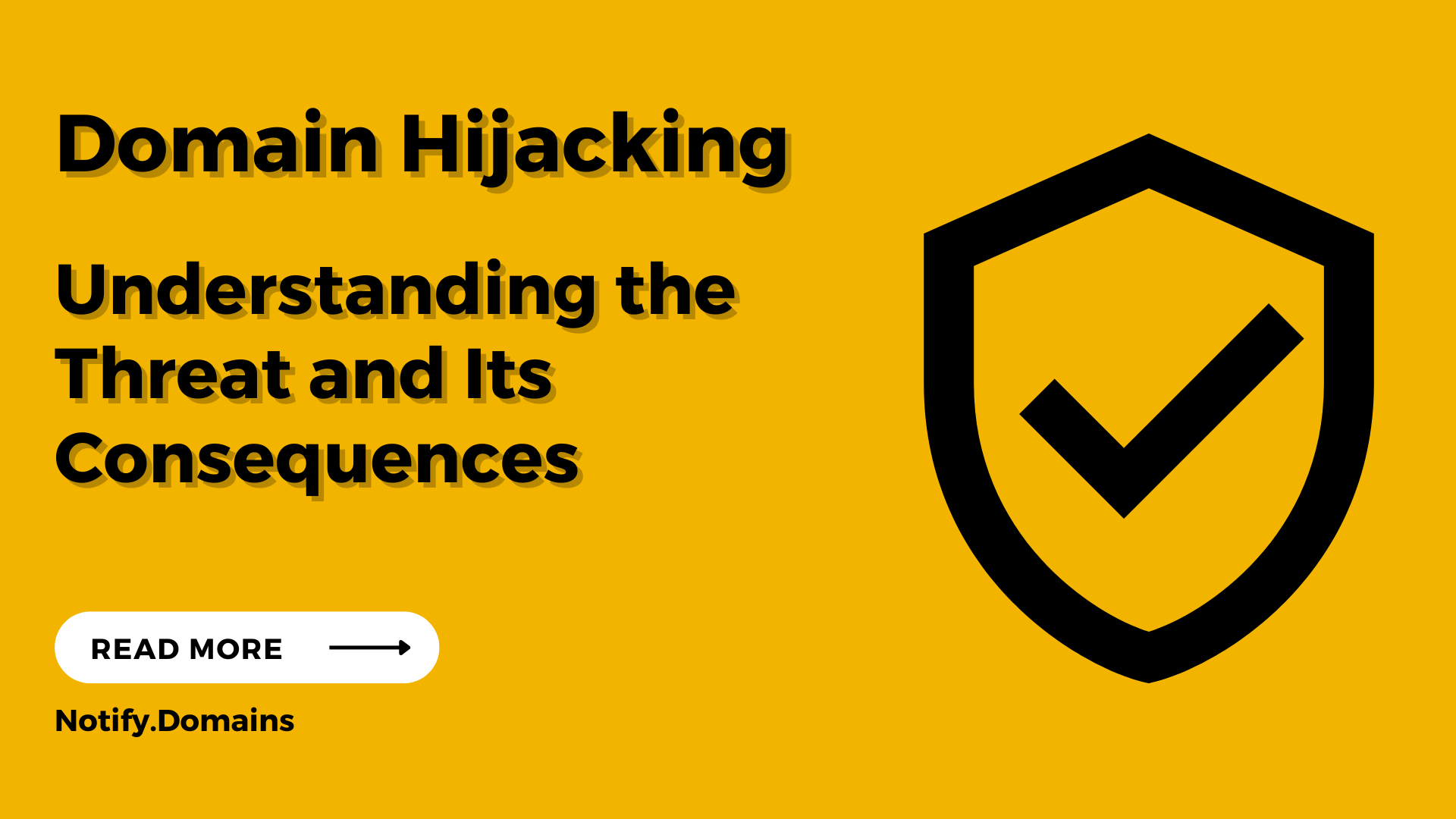Domain Hijacking: Understanding the Threat and Its Consequences

Your domain name is a critical part of your business. It is like the gates of your enterprise. When the gate doesn't work the enterprise paralyzes. Domain names have become valuable assets, serving as the digital addresses for websites and online businesses. However, with this value comes a risk - the threat of domain hijacking. This malicious act can have serious consequences for individuals and organizations alike.
What is Domain Hijacking?
Domain hijacking, also known as domain theft, is a cyberattack in which unauthorized individuals or entities gain control over a domain name registered by someone else. Essentially, it's the digital equivalent of someone breaking into your home and claiming ownership of it. This nefarious act can occur through various means, such as hacking into the victim's domain registrar account, exploiting weak credentials, or using social engineering tactics to trick domain owners or registrars.
Consequences of Domain Hijacking:
-
Financial Loss:
Domain names often hold substantial financial value. A hijacker can sell a stolen domain on the black market or demand a ransom from the legitimate owner to regain control. Additionally, businesses may suffer significant revenue losses due to disrupted online services and trust issues with customers.
-
Reputation Damage:
When a hijacker takes control of a domain, they can redirect it to malicious websites or engage in activities that tarnish the legitimate owner's reputation. Visitors who stumble upon these nefarious sites may associate the negative experience with the rightful owner, causing reputational damage that can be difficult to repair.
-
Data Breach:
Domain hijacking can lead to unauthorized access to sensitive data associated with the domain, including email accounts and databases. This can result in data breaches, identity theft, and loss of critical business information.
-
Disruption of Services:
Hijackers often alter DNS settings or redirect traffic to rogue servers. This can lead to a complete disruption of an organization's online services, including websites, email, and e-commerce platforms, causing inconvenience to customers and loss of business opportunities.
-
Legal and Regulatory Consequences:
Domain hijacking can lead to legal battles and regulatory issues. The legitimate owner may have to engage in lengthy and costly legal proceedings to regain control of their domain. Additionally, they could face penalties for any illegal activities the hijacker conducted using the stolen domain.
-
Loss of Intellectual Property:
In cases where a hijacker takes control of a domain containing valuable intellectual property, such as trademarks or copyrighted content, the rightful owner may lose control over their creative or branding assets.
Preventing Domain Hijacking:
To protect against domain hijacking, domain owners should take the following precautions:
- Use Strong Authentication: Employ strong, unique passwords and enable two-factor authentication (2FA) for domain registrar accounts.
- Regularly Monitor Domain Status: Keep a close eye on your domain's registration status, expiration dates, and DNS settings. Any unauthorized changes should be addressed promptly.
- Registrar Security Features: Choose a domain registrar that offers security features like domain locking and transfer lock to prevent unauthorized transfers.
- Regularly Update Contact Information: Ensure that your contact information with the registrar is up-to-date, so you receive notifications of any suspicious activity.
- Educate Staff: Train employees and team members to recognize phishing attempts and social engineering tactics that could lead to domain hijacking.
To monitor your domains of any changes, consider using Notify.Domains.
Notify.Domains provides monitoring of your domain and can notify you through different channels. It offers a
robust solution to ensure you stay informed about your domain's status and avoid unexpected expirations.
To conclude, domain hijacking is a serious threat with far-reaching consequences. It can lead to financial loss, damage to reputation, legal troubles, and disruptions to online services. To safeguard their digital assets, individuals and organizations must remain vigilant and implement robust security measures to protect their valuable domain names.
